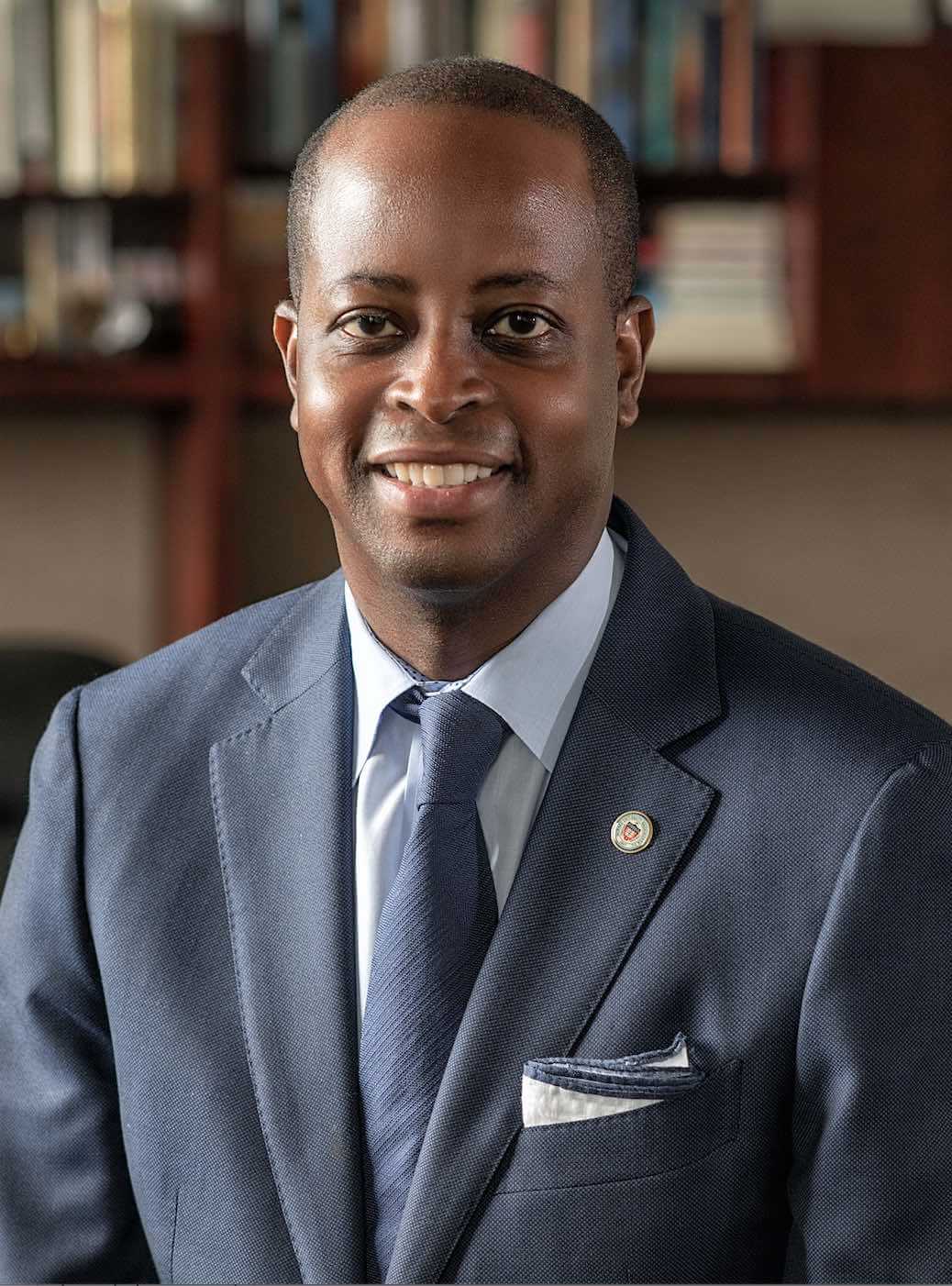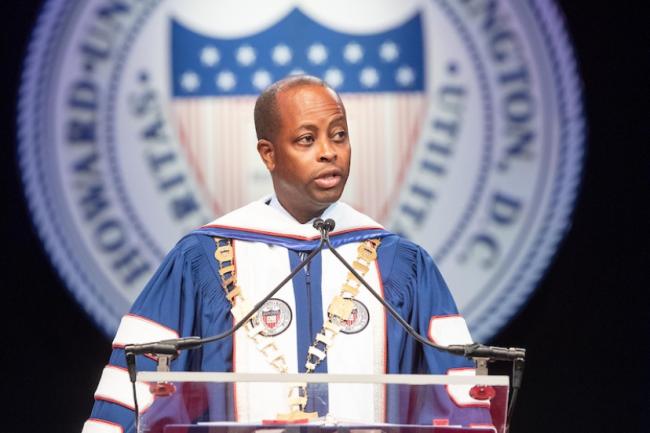 WASHINGTON – In a year defined by a global pandemic and a national reckoning with systemic racism, Howard University President Wayne A. I. Frederick has been named Nonprofit Leader of the Year for 2020 by the Washington Business Journal. He shares the award with Tonia Wellons, president and CEO of the Greater Washington Community Foundation. The Washington Business Journal recognized a total of seven area executives for exemplary service and impact on the local community, including chef and philanthropist José Andrés, the CEO, co-founder and executive chairman of ThinkFoodGroup, who was named CEO of the Year for 2020.
WASHINGTON – In a year defined by a global pandemic and a national reckoning with systemic racism, Howard University President Wayne A. I. Frederick has been named Nonprofit Leader of the Year for 2020 by the Washington Business Journal. He shares the award with Tonia Wellons, president and CEO of the Greater Washington Community Foundation. The Washington Business Journal recognized a total of seven area executives for exemplary service and impact on the local community, including chef and philanthropist José Andrés, the CEO, co-founder and executive chairman of ThinkFoodGroup, who was named CEO of the Year for 2020.
“It is a true honor to be recognized by the Washington Business Journal and represent the incredible work Howard University has done throughout this year,” says President Frederick. “As the coronavirus pandemic has disproportionately devastated the African-American community, and helped shed light on the historic inequities Black men and women have struggled against for generations, Howard was thrust into a role of national prominence. People throughout the country have looked to us for support, guidance and direction. I am proud of our ability to marshal our resources and influence to elevate the truth in order to serve the Black community and our country as a whole.”
The coronavirus pandemic unleashed simultaneous health and economic catastrophes around the globe and coincided with a national movement protesting systemic racism on a scale our country hasn’t seen since the 1960s. As the president of a historically Black college and university (HBCU); as a surgical oncologist and the Charles R. Drew endowed professor of surgery at Howard University Hospital; and as a veteran administrator with a master’s degree in business administration, President Frederick was uniquely positioned to serve as an institutional, local and national leader during these unprecedented times. He continues to provide an influential voice and guide critical actions directed at confronting all three crises – health, economic and social – that our country is facing right now.
Throughout his career in the medical profession, President Frederick has developed a reputation as an expert on disparities in health care. He has leveraged that expertise, as well as Howard’s prominence and resources, to call attention to the Black community’s disproportionate death rate from COVID-19 and to take action to protect Black individuals in Washington, D.C., and around the country from the effects of the pandemic.
In April, Dr. Frederick was appointed by D.C. Mayor Muriel Bowser to serve as co-chair of the Equity, Disparity Reduction, Vulnerable Populations Subcommittee for the Reopen DC initiative. His focus was on protecting and serving the District’s most vulnerable communities during the pandemic. In October, Howard was selected by the National COVID-19 Prevention Network to participate in an upcoming phase 3 vaccine trial.
In steering Howard’s operations during the pandemic, President Frederick’s guiding principle has been the safety and wellbeing of its students, faculty and staff. Howard has been a leader among institutions of higher education by making a commitment to avoid faculty and staff furloughs and layoffs, despite incurring additional expenses and increasing financial student aid by $14 million. Considering the devastating toll the pandemic has had on the Black community, and the number of African-Americans who work for Howard, President Frederick made it a priority that Howard would not contribute to the Black unemployment rate. To preserve staff positions, Howard quickly transitioned to remote work, created a virtual learning environment and redeployed employees whose previous responsibilities changed.
With reports of two COVID-19 vaccines proving safe and effective, President Frederick has also used Howard’s standing in the community to try and rebuild trust between African-Americans and the medical establishment. Knowing that this mistrust, though understandable considering the history of mistreatment of Black men and women at the hands of the medical profession, could exacerbate the negative effects of the pandemic on the Black community, President Frederick continues to work to increase confidence in the vaccine to ensure the Black community is not left behind as the country recovers from the pandemic.
The full feature on President Frederick will appear in the special edition of the Washington Business Journal on Dec. 11.
# # #





